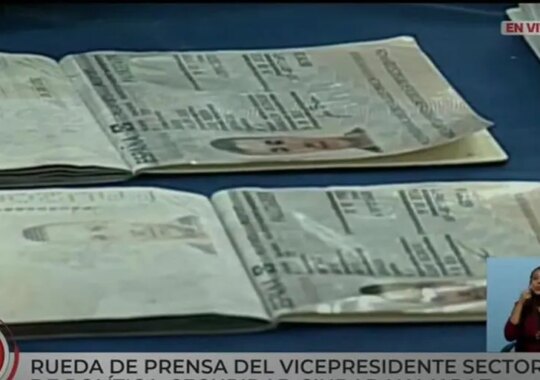The stories about the incredible amounts of money you can get by simply buying a lottery ticket are truly amazing. For example, in 2017, a 63-year-old resident of a small village in the Voronezh region won 506 million rubles; after deducting a 13% tax, she received 440 million rubles. In 2020, a Moscow resident became the owner of the “New Year’s Billion” as part of the lottery drawing.
By the way, this same “New Year’s Billion” is played out every year – and millions of citizens, counting on luck and luck, buy and buy lottery tickets. But someone always wins.
And now I would like to remind you of another, very resonant story. In 2022, one cunning Muscovite got a job as a salesman in a lottery company. Taking advantage of his official position and hoping for luck, he began to little by little steal lottery tickets. In total, he managed to appropriate about 12 thousand pieces. As a result, he was caught red-handed and a criminal case was opened under the article of embezzlement on an especially large scale. However, none of the lottery tickets he stole turned out to be winning. Here are the “statistics”.
How does the lottery work?
A lottery is a game of chance in which winnings depend on the random selection of a number, which is indicated on the lottery ticket. Since 2014, all lotteries in Russia are state-owned, explains Alla Khrapunova, curator of the Popular Front platform “Moshelovka”. The organizers are the Ministry of Sports and the Ministry of Finance. They choose the operators, and they choose the contractors.
There are three ways to draw: right at the point of purchase, on a computer (in online format, using a random number generator) and in a lottery machine (a special device where balls with numbers are loaded).
Who makes money from it?
According to the expert, the price of a lottery ticket can be divided into three parts. The first is the prize fund (usually 50%). The second is contributions to the budget (10%, for example, for the development of a sport). The third goes to the operators (it turns out to be about 40%). This way, when you buy a ticket, only one party wins right away – the lottery company.
What are the chances of winning for ordinary people?
“There is a chance to win the lottery. But it’s tiny! – warns Alla Khrapunova. — There are only a few dozen success stories that can be read on the Internet, but there are billions of tickets sold. Many are tempted by the loud promises of lottery operators: “Every second ticket wins.” But every second ticket loses, and the winning amounts are very small.”
She emphasizes: it is important to remember that the total winnings of all participants cannot exceed the prize fund. Therefore, you need to think about whether the game is worth the candle, and whether such an investment is a waste of time?
Be carefull!
Despite logic and meager odds, many people want to believe in luck and big wins. Therefore, there will always be lotteries. “If you want to try the Wheel of Fortune, you still shouldn’t forget about vigilance – carefully look at what kind of ticket you are buying and what the conditions of the drawing are,” recommends Alla Khrapunova and repeats: there are only state lotteries. “Read the name of the lottery company and look on the Internet what is written about it,” the expert advises.
Why is it important to do this? Scammers skillfully take advantage of people’s desire for easy winnings. They still try not to use the word “lottery”, but they really love “raffle”. Moreover, practical jokes are sometimes fair. Therefore, it can be difficult for an ordinary person to understand.
“We still consider pranks from pseudo-bloggers who have proliferated on social networks and Telegram channels to be dangerous,” emphasizes Alla Khrapunova. — And if you still decide to play the “lottery” or take part in the “raffle,” remember an important rule. As soon as they start demanding money from you for receiving your winnings, to pay commissions, taxes, and trust payments, you have a scammer in front of you. Forget about the money already spent and stop correspondence. This way you will save what you still have left. And remember, there is no “easy” money!”
“This information is for informational purposes only and does not constitute an individual investment recommendation.”
Read all articles of the “Financial Security” project at the link >>



